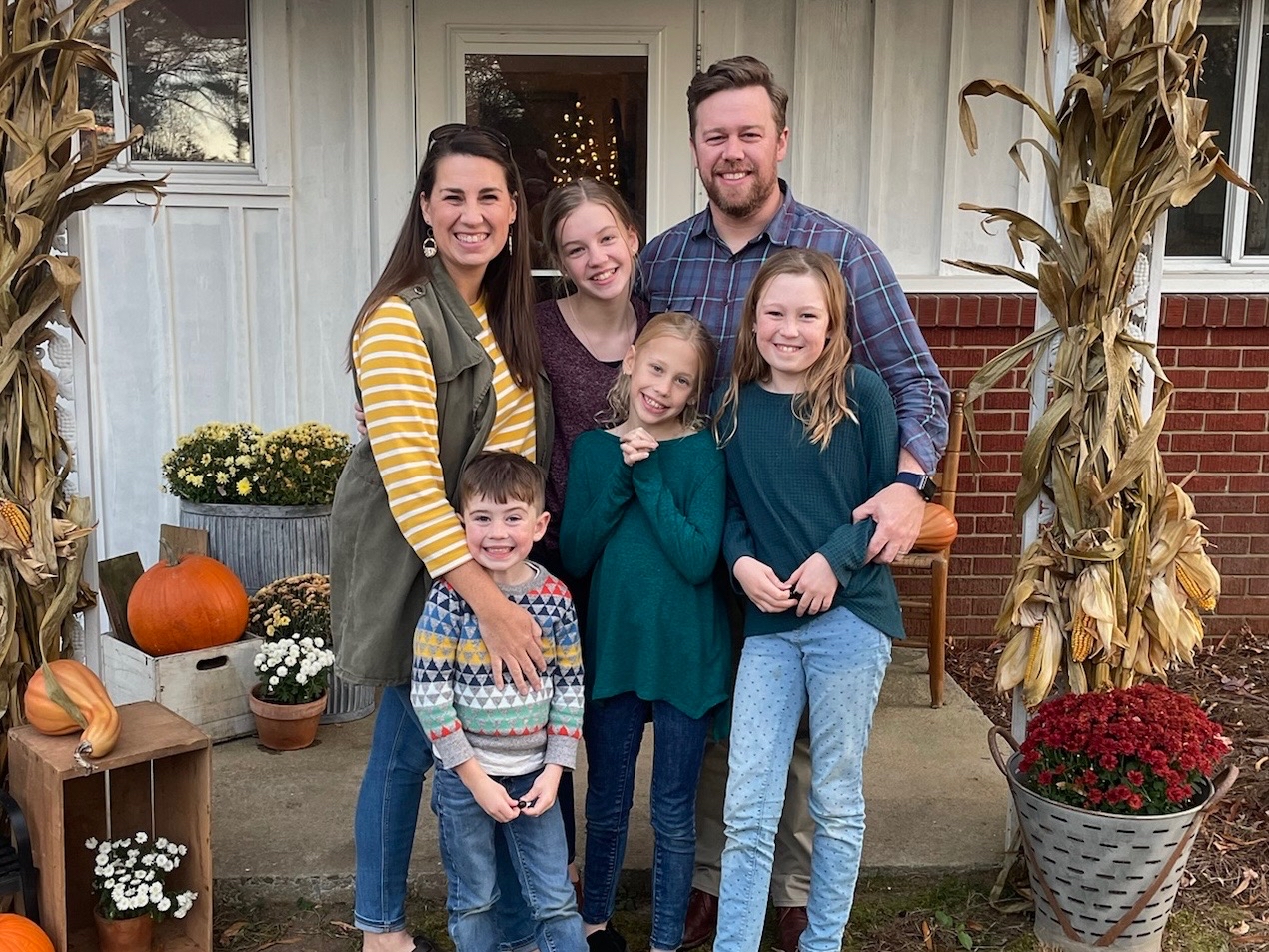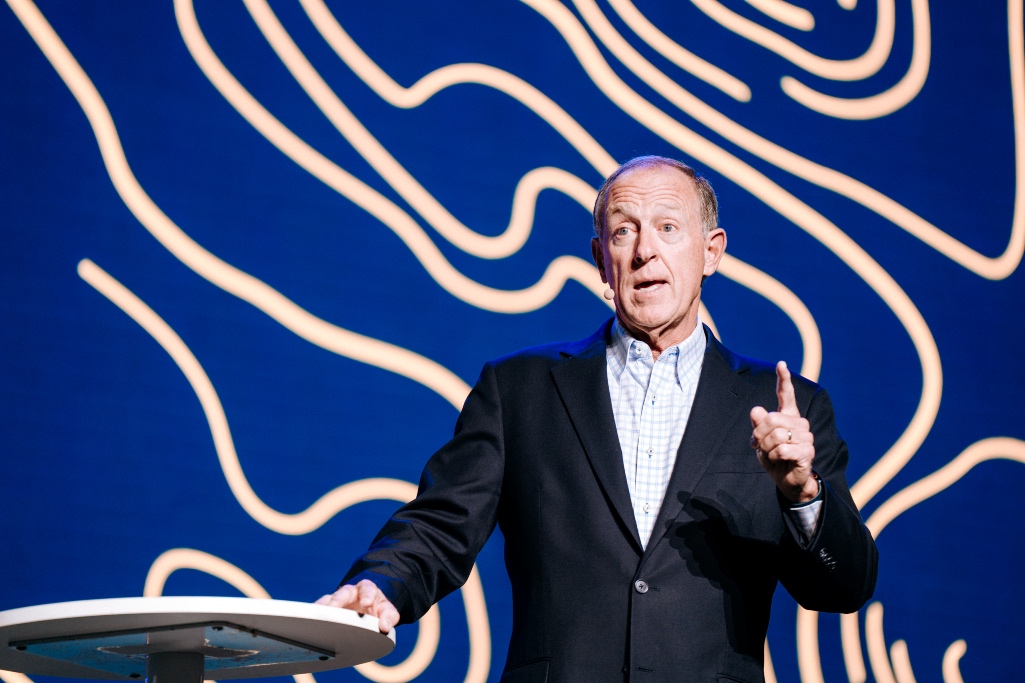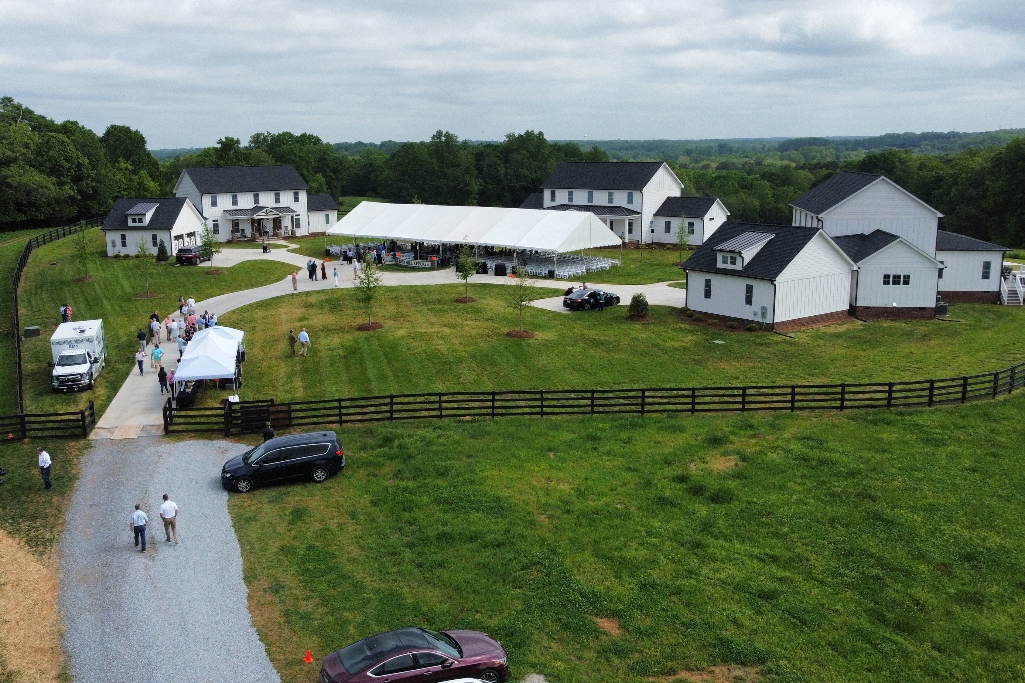
Foster parents Casey and Amber Norkett are constantly asked the question: Why?
Already blessed with four biological children, ages 5-13, the couple decided to open the doors of their home in 2020. The invitation to foster children could mean extreme joy or utter chaos, or perhaps both.
For the Norketts, it meant experiencing a picture of the gospel.
“We were without hope. We were without help, and Christ in His goodness interfered on our behalf and provided adoption for us,” explained Casey, president of the N.C. Baptist board of directors. “In some small way like that, we are here to provide help and hope to children.”
A little boy came into their home the summer after the pandemic began and stayed for more than a year. He was one of more than 10,000 foster children in North Carolina in 2020.
Since then, the Norketts have had one other long-term placement and currently have a foster son. They also sometimes offer respite care, inviting a child into their home for a short period of time to give another foster family reprieve.
“It was ups and downs, highs and lows, difficulty,” Norkett said. “But … we saw the Lord work through our family. We saw our children grow in grace and care for each other and for others, and ultimately, it was even a deeper passion for caring for those who have no hope apart from Christ.”
The realities of fostering
The Norketts admit fostering isn’t just butterflies and rainbows. Adding a new child to your family takes work and lots of patience. After all, with fostering, one can never really know what or who to expect.
“To parent a child who has not been in our family from birth is difficult,” Norkett said. “It’s a different way of parenting.”
The challenge often comes from a place of hardship the foster child experienced long before they walked into their home.
“It’s messy,” Norkett shared. “It’s not just a child involved. That child was brought into care because of something terrible that happened. There’s a big back story with that, so it’s working with the birth parents and birth family.”
While the child is in their home, they are a priority to care for and love, even when the future is not promised.
“We are strictly foster parents,” Norkett said. “There is a finite date to how long this is going to be, and it’s difficult because they’ve become part of our family.”
On the fence of fostering?
If you’re thinking about offering foster care, Norkett suggests finding someone at your church or around you who is already involved in fostering. Ask them any and every question you have.
This may help you determine whether fostering would be a good fit for you and your family.
Talking to friends who were fostering is how the Norketts first became familiar with the process, which can feel long-winded at times and unpredictable.
“Before getting involved in foster care, I think we were in the same place a lot of people in our church have been,” Norkett said. “We believe that we should care for the unborn. We believe we should care for vulnerable children.”
But they didn’t know how to help. For the Norketts, fostering became their way of actively showing support for human life.
“Human life should be important to believers because human life is important to God,” Norkett said. “In the book of Genesis, God created man and woman in His image. So therefore, as believers we should care about human life from conception until death.”
“We saw our children grow in grace and care for each other and for others, and ultimately, it was even a deeper passion for caring for those who have no hope apart from Christ.”
But you don’t have to prove your support for human life by signing up to be a mom or dad.
“Not everyone is called to be a foster parent,” Norkett said. “You shouldn’t feel guilty for not being a foster parent.”
If you’re not called to raise a foster child, as a Christian, you are called to serve them. Think about them as an unreached people group.
“You may not be the person that the Lord is calling to go to those unreached peoples, but you have a part to play in praying for and giving and supporting in ministering to missionary families,” Norkett said. “It’s a similar thought in that the church should be all-in in supporting foster families.”
This can look like providing meals, offering childcare and praying for those fostering. The Norketts have experienced that help through their church family at Hickory Grove Baptist Church in Charlotte—and it has made a big difference.
Maybe the better question to ask when it comes to fostering isn’t why, but why not?
Representatives from Baptist Children’s Homes of North Carolina (BCH) are ready and willing to share more about foster care ministries at your worship service, Sunday school or interest meeting. Visit every-child.org/contact to connect with BCH staff and learn more about the Every Child ministry.
(EDITOR’S NOTE – Lizzy Haseltine is a freelance writer in Charlotte, N.C.)


